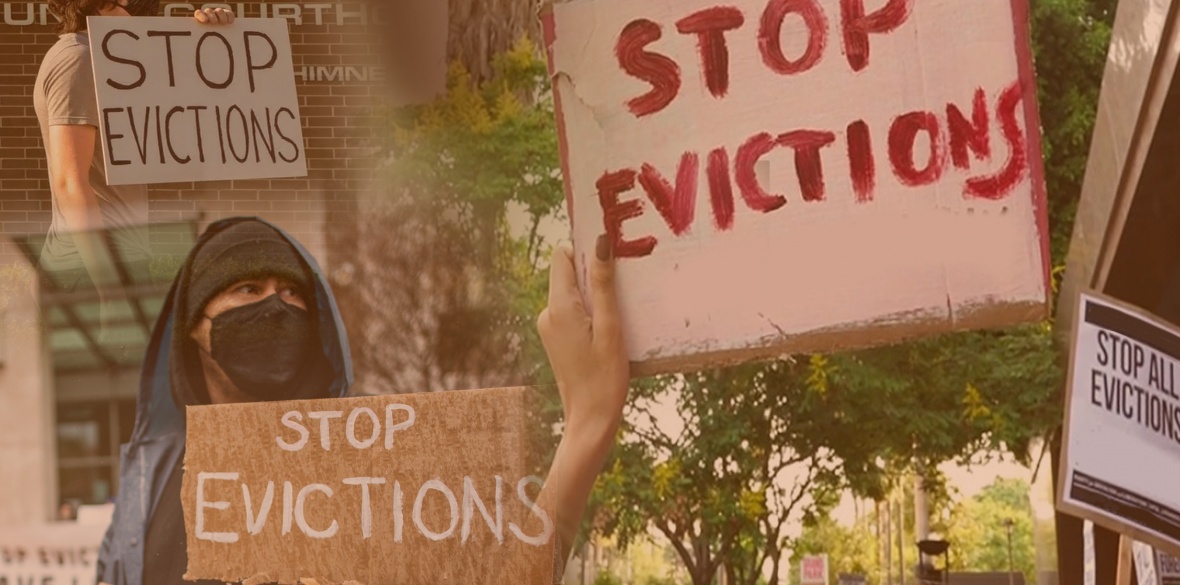This is the last article you can read this month
You can read more article this month
You can read more articles this month
Sorry your limit is up for this month
Reset on:
Please help support the Morning Star by subscribing here
DURING the early days of the pandemic in March 2020, the Home Office suspended evictions of destitute refused asylum-seekers in line with the urgent direction to local authority’s homelessness services to bring “everyone in.”
But only six months later in September 2020, during the “second wave” of Covid-19, the Home Office announced its plan to restart evictions of those asylum-seekers whose applications have been denied and who don’t agree to leave.
Charities and human rights campaigners condemned the decision as inhumane and warned it could result in rough sleeping and sofa surfing and, as a consequence, a rise in coronavirus cases.
This plan by Home Secretary Priti Patel hit a bump in the road last week as the High Court questioned her failure to explain the legal basis for changes to asylum accommodation policies and described the situation as “extremely troubling.”
Several asylum-seekers who had received notice to leave their asylum accommodation decided to challenge the decision to resume evictions in October 2020, instructing Greater Manchester Law Centre and Deighton Pierce Glynn to represent them.
This led to the court making an interim order in November prohibiting evictions. Following this order, the Home Secretary suspended the Home Office’s eviction policy.
On April 1 2021, the Home Secretary announced that the Home Office aimed to restart evictions from April 12 2021.
Later that same month on April 23, the asylum-seekers challenging the Home Office were granted permission to amend their case to challenge the new policy and specifically whether the Home Secretary had acted lawfully by prioritising her policy of immigration control (encouraging people to leave the country voluntarily by allowing them to fall into homelessness and destitution) over public health and the risk to BAME communities and disabled people.
However, the Home Office persuaded the court to lift the interim order, allowing them to start the notice process, on the basis that no evictions would take place before the final hearing of the case.
On the second day of the final hearing, the Home Secretary’s legal team were forced to ask for the case to be adjourned because they were unable to confirm Ms Patel’s position about her legal powers to accommodate people during the pandemic.
The court agreed to adjourn the case, but only on the basis that the Home Office would not be permitted to make eviction decisions or serve 21-day eviction notices until the next hearing of the case.
This means that around 4,000 asylum-seekers will be protected from receiving eviction notices at least until the case is heard again. The date for the next hearings is for later this month on May 27 and 28.
The judge, Mr Justice Garnham, was extremely critical of the actions of the Home Office and Ms Patel after an official stated in his evidence that the Home Office may not have acted lawfully in its accommodation policies for asylum-seekers.
The Home Office official said: “We did not consider what power, or whether we had the power, to implement what we saw as administrative changes. This was a response to the urgency of events and the immediate concern about keeping people in the same accommodation.”
Greater Manchester Law Centre — representing three of the clients in the case — said of the decision: “The Home Secretary has been trying to evict thousands of migrants during the pandemic despite the risks to the communities they live in from doing so.
“She has been unable to properly defend these claims in court today, despite being told in clear and strong terms by a High Court judge to do so.”
Such actions show their commitment to the hostile environment throughout this pandemic, maintaining, without evidence, that people will be deterred from seeking in sanctuary in Britain by the paucity of support and degrading treatment they receive when they do so.
The government has shown it is willing to be reckless and to put asylum-seekers at risk, not only of homelessness but of catching and spreading Covid-19 during a global health pandemic. It has put its aggressive anti-immigrant policies ahead of the safety of both asylum-seekers and those organisations and individuals who are willing to offer shelter and support.
Ruth F Hunt is an author and a freelance journalist.
Greater Manchester Law Centre can be found at https://www.gmlaw.org.uk
Update: On The 25th May, Patel dropped her plans to evict these refugees during the pandemic.











